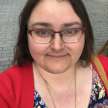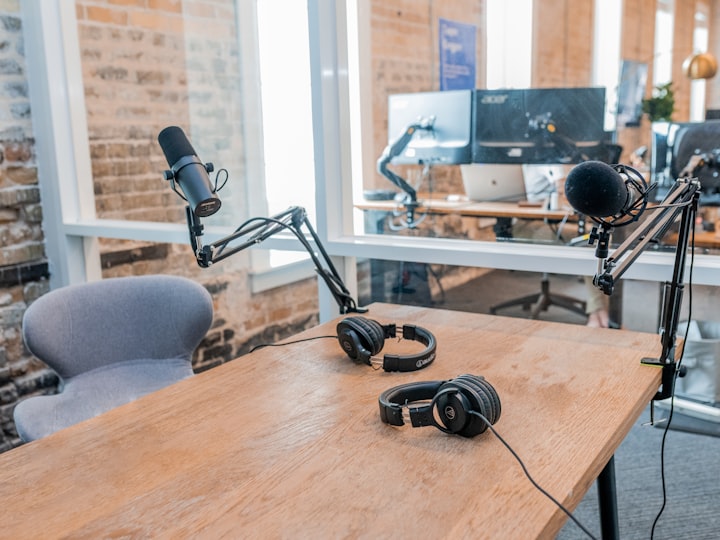I Finally Read Rich Dad Poor Dad
A book, I’ve been wanting to read tor

Typing Rich Dad Poor Dad into Vocal's search engine brings a plethora of results. It's a book that caught my eye in the book shop and it's been a book I've wanted to read for years. So why has it taken me so long to read it? Well I had a long list of books I wanted to read. At the moment, I believe my list on Goodreads contains over 900 books. Once I slashed my to-be-read list down to the three-figures, it eventually popped up in my library's catalogue and I borrowed it for a while. I have since returned it, but it's a book that I believe will stay in me. When I got around to actually reading the book, I felt it had been a book I had already read before.
The rich dad in the book is the father of Robert Kiyosaki’s best friend. The poor dad is Kiyosaki’s biological father. Through the strong examples and life experiences. Like how he worked for nothing because the moment he worked for nothing he would begin to think like an employee.
It’s this book where I can see the key difference between an employee and an entrepreneur. Employees are more likely to play it safe and expect to be looked after in return for their hard work. Entrepreneurs are not afraid of taking risks and are responsible for themselves and others. I think it’s good to have a little bit of both.
Why is that? I think one of the signs of a great book dosen't have anything to do with popularity, and how good things of the book are. There's lots of good, okay and bad books about there, but great books stay with you. Great books have an affect on you even when you're not reading them. People still talk about it and its cultural relevance stands tall. This is important in both fiction and non-fiction books. The Harry Potter series is still relevant, the movies are still aired regularly, they're readily available, and still profitable.
Poor people hate this book. Rich people, and those wanting to increase their net worth find that this book will change their life. The reason I say that poor people will hate this book is because it goes against the traditional education and life cycle. You go to school to pass your exams and go to higher school, then you go to college and University, then you use that degree to get you a job. You don’t learn about money in school. So by the time you’ve had all your education, the world that the education system has prepared you for no longer exists.
I still work full-time, and even though it is not perfect, it’s still my biggest income stream, and also my most heavily taxed. I’m lucky it’s a job that has high value and the pandemic brought it to the attention of the masses. I won’t be there for long. Once I’ve got my start date for my new job, I shall be working somewhere that better fits my lifestyle and current commitments. I’m also going to learn some new skills and be in a fresh environment which is exciting to me.
The book’s message can be applied in many situations. The real teachings that the book tells you is the difference between rich and poor people and why the gap is getting bigger.
Rich people make their money work for them through making everything an asset instead of a liability. They pay themselves first and invest a lot. Whereas poor people pay themselves last and as a result have little left to save. Robert T. Kiyosaki is also against putting money in savings and says saving is for losers. I disagree with this, because I’ve been able to save a lot of money by paying myself first, I do invest money whenever I can and I know that all the interest, dividends and money saved will all add up to a good sum that I will be able to spend it on things that I enjoy.
I’ve followed and watched many frugal and money channels on YouTube and I can see that they’ve had a lot of inspiration from this book. Paying yourself first and investing in real estate is advice that I’ve seen a lot in these videos.
Ultimately this book is solid advice for people who want to be rich and achieve finical freedom. To me, financial freedom means living without debt or worrying about paying bills. I was rejected at University, and it ended up becoming the best thing that ever happened to me. I have no debt whatsoever, but occasionally I will use my credit card to let them know I am still alive.
Before knowing about this book, I used to spend a lot of money. Now I am working on saving money and creating alternative income streams. I know if I had relied on just my employment income, I would have had had as many privileges as I have had. So if I feel I am ever in money trouble, I know I can borrow this book from the library.
About the Creator
Chloe Gilholy
Former healthcare worker and lab worker from Oxfordshire. Author of ten books including Drinking Poetry and Game of Mass Destruction. Travelled to over 20 countries.






Comments
There are no comments for this story
Be the first to respond and start the conversation.